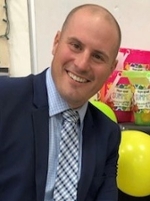Saskatchewan Principals’ Short Course
"The First 100 Days: Stewarding People, Learning & Resources with Confidence and Competence"
Session Descriptions
Wednesday, July 2
Consistent with this year’s theme, The First 100 Days: Stewarding People, Learning & Resources with Confidence and Competence, the panel will explore how educational stakeholders view the development of foundational skills and leadership capacity, and their perspectives on the provision of consistent and sustained supports to foster growth opportunities. The panel will consider the kinds of supports that aspiring and early career school leaders should expect as they grow into their roles. Ultimately, panellists will consider and discuss how our expectations of growth and development that we place on school leaders can and should be met with a parallel focus on a network of support that demonstrates our value for leaders and their roles, and that their success is a product of our support.
|
Delores Netmaker, FSIN Deloris Netmaker is from Big River First Nation. She has been married for 30 years, with 4 sons and 2 grandsons. She is a fluent Cree speaker. She really enjoys this time in her life as a wife, mother and grand-mother! Being an educator at this time has been both challenging and exciting – being a grandmother has been one of her greatest motivation. It has been an honor and privilege for Deloris to serve as the Executive Director of Education the last three years at FSIN. The Federation of Sovereign Indigenous Nations, is Saskatchewan-based First Nation organization. The FSIN represents 74 First Nations in Saskatchewan. The Federation is committed to honoring the spirit and intent of the Treaties, as well the promotion, protection and implementation of the Treaty promises that were made more than a century ago. Deloris has been involved in Education for over 25 years. She has served in the classroom as a teacher in all grades, success coach, Special Ed./Resource, a Principal and Vice- Principal, as well as a Superintendent. She has worked in various First Nations and in the city of Saskatoon. Through her experiences it has given her insight on the needs of the students and the challenges they face. Education has always been a passion and desires to see all students succeed! Her hope is to see that all walk in the spirit of reconciliation both young and old, that we have an understanding of where we all have come from so that it will give us clear direction of where we are going. If we as leaders have an open mind and a willingness- it is possible for those following to see a world different from what we grew up in. |
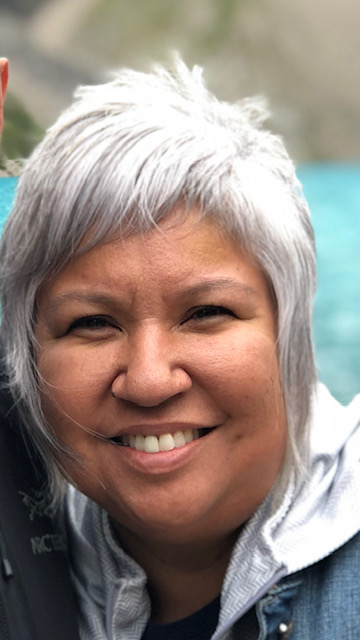 |
|
Dan Poirier, STF Dan Poirier is a seasoned educator and leadership advocate with over 20 years of experience in Saskatchewan’s education system. Currently serving with the Saskatchewan Teachers’ Federation, he mentors educators through coaching, collective bargaining, and professional conduct processes. Daniel has served as Vice-Principal at multiple schools and was President of the Prince Albert & Area Teachers’ Association, representing over 800 teachers. His educational leadership is matched by his commitment to mentorship, equity, and fostering collaborative school environments |
 |
|
Ward Strueby, LEADS Ward is the Director of Education/CEO for the Holy Trinity Catholic School Division. He began his teaching career at the Estevan Junior High, where he taught Grade 7. After launching his career, he pursued a master of education degree, specializing in curriculum and instruction, an area that continues to be a main focus and passion of his to this day, along with his special education interests. Strueby believes in the importance of community collaboration and listening to the voices of all educational stakeholders, including student voice. He believes in the importance of professional development for all staff to meet the needs of the diverse learner. Strueby has 10 years of in school administrative experience at both the elementary and high school level. |
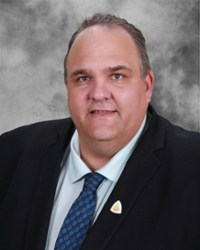 |
|
Jill Welke, SSBA Jill joined the SSBA in early 2015. With over 25 years of diverse professional experience, she has served in Executive Government, as Manager of Communications for the Regina Regional Economic Development Authority and for the MacKenzie Art Gallery. She holds a Bachelor of Communications from Mount Royal University, a Leadership Development Program Certificate from the University of Saskatchewan, professional facilitation certification, is Dare to Lead Trained, and has been a sessional instructor with the University of Regina. |
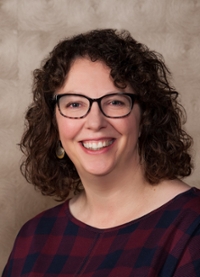 |
documents/stances-strategies-and-scripts.pdf
| Brad Nichol is going into his 30th year in education. He has loved his roles as teacher, principal and senior administration. He has worked in three provinces and thirteen schools. He has experience in provincial, federal, and independent systems. Currently serving as a Learning Superintendent in Prairie Spirit School Division, Brad gets to support a variety of portfolios, but he is most passionate about getting to support in-school leaders to build confidence and capacity to successfully lead people with care and joy. | 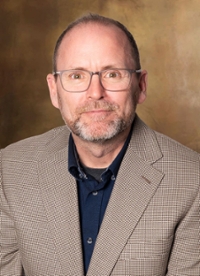 |
Step into the dynamic world of school leadership through this engaging session that follows a rural principal’s day from morning coverage schedules to late-night emails. Explore the challenges, decisions, and triumphs that shape a school’s culture and student success. This session offers a candid look at time management, staff support, student engagement, and the unexpected moments that define the principalship.
documents/the-first-100-days.pdf
| Colette Evans, a dedicated principal and middle years teacher, blends her B.Ed. and M.Ed. in Educational Administration with a passion for student-centered leadership. She champions policies and school culture that prioritize what’s best for students, working to inspire meaningful change in rural education. | 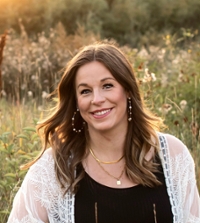 |
| Nevin Halyk has spent over 30 years in a few different rural schools, and still feels the love for helping staff and students be their best! An administrator for over 20 years, Nevin values relationships and aspirational thinking to help lead teams to positive cultures. When not working at school or coaching, Nevin enjoys his grandchildren, along with many outdoor activities. | 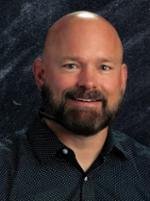 |
Thursday, July 3
Stewarding learning is one of the greatest acts of reciprocity to aspiring leaders. Educational leaders have many roles in the school and each of those roles are important. In the Meadow Lake Tribal Council Education Office, along with Superintendents, Elizabeth Read and Lisa Chatelaine, we will share our instructional learning journey through story. Our story will share the processes, supporting documents for collaboration, and connections to the school-based administrators. At the end of every day, we are all working together for student success.
documents/nehinaw-onikaniwin-principals-short-course.pdf
|
Patricia St. Denis is a Swampy Cree iskwew from Cumberland House Cree Nation. My educational career spans over 26 years, with positions as a teacher, vice principal, principal, assistant superintendent, and superintendent. Currently I am the Sr. Director of Education with Meadow Lake Tribal Council. I am passionate about leadership. The Cree word that embraces leadership is onikaniwin. The way this word has been explained to me is that leadership comes from who you are, your identity. I have committed and dedicated my leadership to serving the uniqueness of each community, while supporting administration holistically. Elizabeth Read is Dene from English River First Nation. I have been in education for 20 years in various teaching and leadership roles. Currently, I am one of the Superintendents with Meadow Lake Tribal Council supporting our Student Wellness Initiative. This is where my love and passion lie, working with and advocating for our students with the highest needs. My hope and dream as a I work towards registering as a Provisional Educational Psychologist, is to continue advocacy for our children and provide support and guidance for our teachers. Tansi, my name is Lisa Chatelaine and I am a proud Cree woman from Waterhen Lake First Nation. This is my 24th year in Education with roles as a Teacher, Catalyst, Consultant and Coordinator. I am one of the Superintendents of Education at the Meadow Lake Tribal Council that supports a team of Consultants who in turn support teachers at our 9 First Nation schools; support with Curriculum, Instruction, and Assessment. The team supports land-based activities, linking them to Saskatchewan and the MLTC Land, Language, Relationships, and Culture curriculum using Holistic planning while incorporating Cree and Dene languages. |
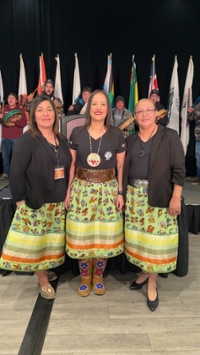 |
Principals play a significant and crucial role in the education system which can often present as being challenging and complex. Tasked with creating an environment for effective teaching and learning, principals may be faced with issues of a legal nature.
This session will cover some legal topics that principals may encounter such as accommodation, off-duty conduct, privacy, student suspensions, teacher regulation and other legal issues.
|
Will Collins was originally called to the Bar of British Columbia in 1997 and returned home to Saskatchewan where he was admitted to the Bar in 1999. Earlier in his career, Will took a break from the practice of law and became a Member of the RCMP, allowing him to live in a First Nation community and then later work as an investigator in specialized urban units including Economic Crimes and Major Crimes. Will returned to practicing law and was a Senior Crown Prosecutor with the Saskatchewan Ministry of Justice. His diverse legal background also includes working with Indigenous governance and representing members of the RCMP in professional discipline hearings. He has extensive experience before the Provincial and Superior Courts, instructed at the Saskatchewan Police College and is a member of the Canadian Bar Association. In September of 2019, Will joined the Saskatchewan Teachers’ Federation as its first in-house legal counsel. He is the father of three children and the husband to a wonderful teacher. |
|
|
Withman Jaigobin has over twenty eight years experience in public education in Saskatchewan. During that time he has been a teacher and principal in both rural and urban schools. He has also spent over 10yrs in the role of a superintendent in rural and urban school divisions. Most recently, Withman is a Senior Administrative Staff at the Saskatchewan Teachers’ Federation for the past seven years. His main portfolio is supporting principals and vice-principals across the province. Withman has had a very unique career in the sector and is passionate about supporting leaders in education. |
 |
This session will help principals better understand how and when to adopt different stances (coach, collaborate, consult, calibrate) as the support teacher growth. Understanding and being intentional about which “hat” they’re wearing, helps principals be more effective creating the outcomes they want from conversations that can be challenging.
documents/stances-of-support-a-orth.pdf
|
Amy Orth is in her 20th year as an educator in Saskatchewan with 12 years as an administrator, working in a variety of rural schools in Prairie Spirit and Sun West School Divisions. She is passionate about supporting teachers, school improvement, and female leadership. Amy currently sits on the STF Provincial Executive and is particularly interested in representing principals within the federation as they navigate their roles as supervisors and colleagues. She is also a long-time facilitator with STF Professional Learning (STFPL), with a focus on school leadership. Amy has two small-ish kids, one husband and a dog and spends most weekends and weeknights at ball fields or hockey rinks giving people snacks. |
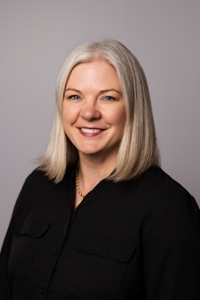 |
In the early days of leadership, one of the most meaningful investments we can make is in the people closest to the learning—our early years educators. This session explores how emerging leaders can confidently and competently steward the essential work of early learning through intentional support of the teachers at its heart. Grounded in the belief that leadership is a journey built on foundational skills and consistent growth, we’ll explore practical strategies for creating collaborative cultures, engaging families, and nurturing professional agency. Whether you're just beginning your leadership journey or seeking to strengthen your foundation, this session will equip you to lead with clarity, empathy, and purpose in service of powerful early learning.
documents/principals-short-course-ece-flourishing-foundations.pdf
| Jennifer Wilde is the proud principal of Lawson Heights School in Saskatoon and a dedicated leader with a deep passion for supporting educators and building strong, collaborative teams. With a career rooted in both classroom experience and system leadership, Jennifer has served as a Coordinator of Early Learning as well as a Coordinator of Mathematics and Assessment with Saskatoon Public Schools. Formerly known as Jennifer Brokofsky, she brings a wealth of insight into the intersection of curriculum, pedagogy, and professional growth.
Jennifer is especially passionate about the foundational importance of early learning and the critical role leaders play in empowering the educators who shape children’s earliest school experiences. In her current leadership role and throughout her career, she has championed a relational, strengths-based approach that nurtures teacher agency and fosters a sense of shared purpose. Outside of school, Jennifer is the proud mom of three children and is engaged to her best friend Jason. Her session will draw on both lived experience and leadership practice, offering heartfelt and practical guidance for aspiring and early career leaders supporting early years education. |
 |
documents/emergency-response-planning-presentation.pdf
|
Ward is the Director of Education/CEO for the Holy Trinity Catholic School Division. He began his teaching career at the Estevan Junior High, where he taught Grade 7. After launching his career, he pursued a master of education degree, specializing in curriculum and instruction, an area that continues to be a main focus and passion of his to this day, along with his special education interests. Strueby believes in the importance of community collaboration and listening to the voices of all educational stakeholders, including student voice. He believes in the importance of professional development for all staff to meet the needs of the diverse learner. Strueby has 10 years of in school administrative experience at both the elementary and high school level. |
 |
Leading Against the Grain: Understanding Racism and Embracing Anti-Racist Leadership explores how educational leaders can confront systemic, structural, institutional, and interpersonal racism. Grounded in Ibram X. Kendi’s work on racist ideas and policies, and George J. Sefa Dei’s ten principles of anti-racist education, the presentation also introduces intersectionality as a lens for understanding marginalization. Participants will reflect on their leadership practices and consider strategies for creating more equitable, inclusive learning environments.
|
Dr. Ayodeji Osiname is an Assistant Professor of Educational Administration at the University of Saskatchewan. His research focuses on anti-racist leadership, inclusive educational practices, support for newcomers, and the promotion of social justice and equity in education. His work aims to create transformative educational spaces where all students feel seen, heard, and valued. Dr. Osiname advocates for leadership that responds to systemic inequities and empowers students to become active agents of their own transformation and advocacy. |
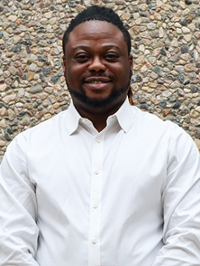 |
This session will demonstrate how property and casualty insurance interacts with education systems, facilities and structures to provide support to schools and school leadership in delivering education to students. Risk management strategies and concepts that support students in classrooms will be highlighted. Your risk management role as a school leader will be explored.
|
Jeff McNaughton and Innocent Ihenyen have managed the SSBA’s General Insurance Plan (GIP) for over 10 years and have developed a robust risk management program that supports publicly funded schools throughout the province. Jeff, as the Director, General Insurance Plan provides strategic direction for the overall program, and Innocent, as a Certified Insurance Professional, provides operational risk management support to school divisions. |
|
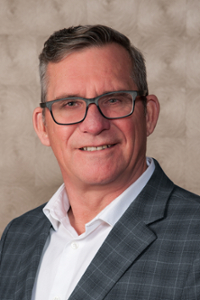 |
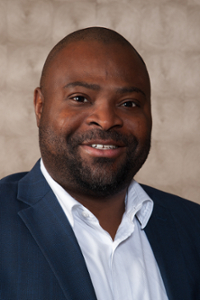 |
| Jeff McNaughton | Innocent Ihenyen |
This session supports early career and aspiring principals in developing foundational leadership practices that cultivate a strong learning culture. Rooted in the belief that leadership is a developmental journey, this session explores how mindful leadership—practiced with intention and reflection—can empower teachers, foster belonging, and steward school culture with confidence.
Understanding Mindful Leadership
Explore how mindfulness strengthens leadership presence, enhances decision-making, and supports the emotional well-being of staff. Learn strategies to reduce decision fatigue and remain grounded in your first 100 days.
Building Leadership Capacity and Belonging
Discuss how stewarding people begins with listening and learning. Discover ways to build teacher agency, nurture a sense of belonging, and encourage a culture of shared leadership that grows over time.
Empowering Teachers to Lead Learning
Learn how to engage teachers in meaningful conversations about practice. Explore practical strategies to offer autonomy, invite collaboration, and create space for reflective, professional growth.
Action Planning for the First 100 Days
Develop an initial action plan to steward people and learning in your school context. Reflect on challenges and supports and begin identifying your next steps as a leader.
documents/suggested-resources.pdf
|
Susan Plant began her career in education in Meadow Lake in 1997. She brings a deep commitment to supporting teacher growth and student learning. Susan holds a Master’s degree in Curriculum and Instruction and has conducted research on effective professional development through a McDowell Foundation research grant. Throughout her career, she has mentored and coached teachers as U of S Cooperating teacher, Learning Coach, Catalyst Teacher, and School Administrator. Now serving as a Superintendent of Learning with the North East School Division, Susan works alongside a dynamic team of principals, teachers, and division staff to enhance student learning, assessment practices, and teacher capacity across the system. She balances her professional life as the mom of a teenager, a proud grandma, and an acreage-dweller who loves gardening, home projects, golfing, and time outdoors. |
 |
Research clearly shows the important role the school leader plays in advancing education priorities and bringing them to life. As such it is critical that school and system leaders engage in anti-racist education work. Through the use of art, this session will support school and system leaders to reflect on their learning and leading journeys in creating more equitable schooling experiences.
|
Dr. Jordan Raymond is a cis-gendered male who identifies as queer, neurodivergent, and has Metis ancestry. His unique perspective adds a fresh dimension to his work as an anti-racist and anti-oppressive educator. Jordan has a wealth of experience in public education, and he is currently a lecturer at the University of Saskatchewan. He has presented professional development at events, conferences, and universities across Canada and around the world. |
 |
This session provides practical insights to help new rural principals lead effectively, build strong teams, and foster an engaging, well-organized school environment. Transitioning from teaching to leadership involves navigating staff and student relations, family engagement, building a positive school culture, managing schedules and budgets, understanding facilities, and refining policies and handbooks. Shared experiences will guide participants through these essential topics and more.
|
Crystal Johnson brings 25 years of experience teaching various elementary classrooms in rural K-12 schools. With a passion for early elementary education, she transitioned into administration as a Vice-Principal. After four years, Crystal became principal and is now completing her second year in this leadership role. Balancing being a principal, devoted community member, busy mom, and a farmer’s wife is no small feat— but she wouldn’t trade a single part of it for the world! |
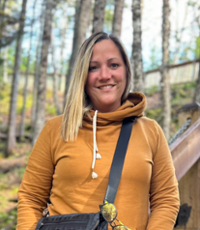 |
The session will overview the role of a school principal when managing fundraising revenues and school-based funds. We will also discuss the types of fundraisers that are acceptable and how to manage public perceptions when requesting funds.
documents/spsc-2025-joel-lloyd-stewarding-resources-in-education.pdf
| Joel Lloyd joined Greater Saskatoon Catholic Schools in 2013 in the position of Chief Financial Officer and Information Technology. In his role, he has executive responsibility for the school division’s finances, facilities, transportation, payroll, insurance, and legal matters. Joel has always promoted transparency in school finances and the prioritization of funding to support classrooms whenever possible. Prior to joining Greater Saskatoon Catholic Schools, he worked for Living Sky School Division and Light of Christ School Division which are both located in North Battleford, Saskatchewan. Joel resides in Saskatoon, with his wife Ashley and two children, Maya and Hudson. When not working, Joel can be found at his family cabin, the rink, or the ballpark. |  |
Friday, July 4
Through the voices of early career vice principals from provincial and First Nation schools, panelists will explore their transitions to leadership, the challenges that they encountered, and the skills and knowledges that helped them to build their confidence and competence. Our panellists will inspire delegates with their humility, resilience, and their generosity in sharing how they encountered new roles and expectations. They will offer advice for aspiring and newly appointed school leaders and educational partners to better support onboarding into the crucial roles of leaders that ensures our schools are welcoming, equitable, effective, and continue to be the foundation of a healthy and prosperous democratic society.
| Jason Bear is a dedicated member of Muskoday First Nation and has been a vital part of the Muskoday School community since its inception in September 2005 as a middle year’s teacher.
In January of 2022, Jason transitioned into a leadership role. Jason is deeply committed to inclusivity, while working to incorporate cultural programming at MFNCS, enriching the educational experience and supporting the holistic development of the whole child. |
 |
|
Kate Clements is the vice principal at Mount Royal Collegiate and a proud Métis educator with kinship ties to Lac Pelletier, Willowbunch, Batoche, and Red River. She graduated from SUNTEP Saskatoon in 2011 and spent ten years teaching grade 9 homeroom and senior Indigenous Studies before moving into administration. In 2022, she completed her Master of Education with a focus on anti-racist and anti-oppressive leadership. Kate is committed to equity and building strong school communities where staff and students feel empowered, motivated, and supported in their teaching and learning. Outside of school, she and her husband stay busy raising three young children, spending much of their time driving to all the activities and trying to squeeze in some time for camping, golfing, canoeing, and just being outside. |
 |
| Dan Howie has served as Vice Principal at Traditions Elementary in Warman, SK for the past five years. Prior to becoming an administrator, Daniel Howie had over a decade of experience as a Senior Math and Science teacher in rural schools in Prairie Spirit School Division. Daniel Howie has also taken on the role of Learning Facilitator, supporting teacher development and instructional growth and Complexity Support Teacher, supporting students through social emotional learning. | 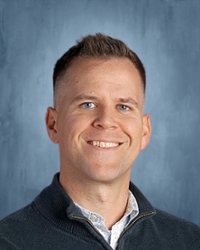 |
| Erin Manovich is a dedicated educator who works for the Greater Saskatoon Catholic School Division. She earned her Bachelors Degree in Education here at the University of Saskatchewan, and currently pursuing her Masters Degree in Educational Administration. Erin serves as Vice Principal and Grade 8 Classroom teacher at St. Anne Inquiry School, where she is committed to fostering a supportive and engaging learning environment for students and staff, inspiring success both n and outside of the classroom. | 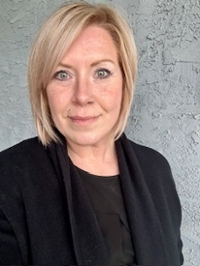 |
This presentation introduces a wholistic approach to educational leadership designed to guide new or transitioning leaders through their first 100 days. Rooted in relational, reflective, and values-based practice, the model moves beyond managerial leadership to emphasize stewardship of people, learning, and resources in culturally responsive and community-centered ways.
Drawing inspiration from Indigenous leadership principles—such as relational accountability, intergenerational engagement, and land-based wisdom—the framework supports growth across four key domains: mind (learning), heart (relationships), body (resources and environment), and spirit (identity and purpose). Leaders are encouraged to approach their role with humility, curiosity, and care, fostering trust, aligning with community values, and setting a foundation for long-term success.
Participants will explore how to build a 100-day plan rooted in connection and reflection, create emotionally and culturally safe spaces, support diverse ways of knowing, and lead with purpose. This presentation offers practical tools and guiding questions for leaders committed to transformational and inclusive leadership grounded in wholistic well-being.
| Celia Deschambeault has been an educator for over 20 years. She has worked in many capacities from being an elementary teacher, high school teacher, vice-principal, principal, coordinator, consultant, superintendent and finally director of education. She holds a Bachelor of Education with distinction, Bachelor of Arts, Master of Education and is currently pursuing a doctorate degree at the University of Regina. Celia is currently the Director of Education for Nisto Awasisak Memorial School in Cumberland House Cree Nation. She has made phenomenal changes in the school which includes making Swampy Cree language and Land-Based Education a foundation. Those changes support decolonization and the revitalization of Swampy Cree Language. Celia is also a Cree Language resource developer and has recently supported Saskatoon Catholic, Sask. Rivers, Northwest School Division and Meadow Lake Tribal Council in Language and decolonization. Her passion is making meaningful change in education. |  |
Navigating Your First Year as a Principal" is designed to equip new school leaders with the essential strategies and insights needed for a successful first year. This session covers setting a vision, building relationships, managing time effectively, and addressing common challenges, to ensure a smooth transition into your principalship role.
|
Dallas Puto (B.Ed. M.Ed.) is a retired high school & elementary school principal in Greater Saskatoon Catholic Schools and Red Deer Catholic Schools. He has also served as an Executive Director for a non-profit and an Educational Advisor for the WHL. Raised on a farm near Hafford, SK, Dallas now works as a Sessional Lecturer at the University of Saskatchewan, as a consultant and copywriter. |
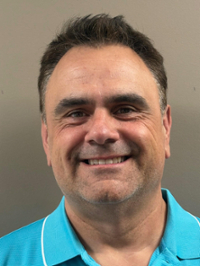 |
Dr. Sawchuk will lead participants through a series of perspectives on parent and family engagement. Participants will develop skills in developing their own framework to work with community to support learning outcomes for students. Family, school, and leadership components of family engagement will be explored based on both research and practice. The four articles that this presentation is based upon are attached for participants' consideration.
documents/principalshortcourse2025-sawchuck.pdf
| Dr. Katrina Sawchuk is a researcher interested in anything to do with education, building community, and the social determinants of health. I am a social justice theorist and a mixed methodologist. I completed my master’s with a thesis in Curriculum Studies at the U of S and recently completed a Ph D in Health Sciences from the College of Medicine. For the last 34 years I have worked in the context of elementary schools while going back to university. I have been a school-based administrator for the last 22 years. My husband Barry and I have five daughters in a blended family, a grandson, and I can’t forget our dog, Daisy! |
 |
In this session, participants will have an opportunity to enhance their capacities as leaders to work towards supporting Two-Spirit and Indigiqueer young people in schools. The presentation will include an overview of terminology, history, statistics, research, resources, and strategies for implementation. This session is an opportunity to work towards reconciliation in schools, ask questions, and feel more confident working with Two-Spirit and Indigiqueer young people.
|
Jade Hupé B.Ed., M.Ed., (she/her) is a Métis educator and Co-Lead of ITTSY. She works at the Gwenna Moss Centre for Teaching and Learning at the University of Saskatchewan after previously teaching French Immersion with SPSD. |
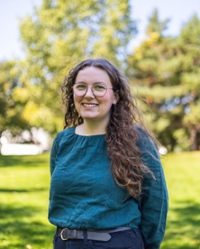 |
| Tanzy Janvier B.Ed., (they/them), a Two-Spirit Denesuline from Clearwater River Dene Nation in Treaty 8, is the Lead Organizer and Founder of ITTSY. They serve as a resource teacher with Saskatoon Public School Division, promoting inclusive education. | 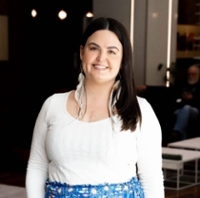 |
This session explores the financial landscape of First Nations education finance, highlighting historical underfunding and funding disparities. It examines the impact of disparities in infrastructure, teacher recruitment, and student outcomes First Nations schools often deal with. Recent policy developments and funding reforms are discussed, alongside the need for sustainable investment and Indigenous-led solutions. The presentation emphasizes the importance of equity, self-determination, and government collaboration in transforming First Nations education finance.
|
Patrick Bugler Husband, Father, Grandfather, Brother, Uncle, Nephew. Member of Red Pheasant Cree Nation, with a 25 year career in education. Bachelor of Education and Masters in Educational Administration. Has had roles of teacher, Vice-Principal, Principal, Instructional Coach, Superintendent, and Director Education. Former First Nations and Metis Advisor at the Ministry of Education. Currently the Chief Executive Officer with Treaty Six Education Council, an organization providing second level education support services to 13 Nations across west-central Saskatchewan. |
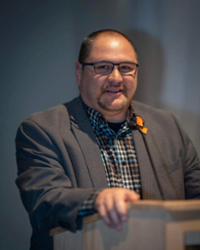 |
This session reflects on the first-year experiences of a high school principal, drawing insights from The First 100 Days. It offers a historical perspective on Saskatoon Native Survival School (now Oskāyak) and provides practical, relationship-driven strategies to foster Indigenous student success in the city.
documents/principal-short-course-2025-leading-with-heart-and-history-1.pdf
| Jennifer Altenberg, a bi-racial, Michif educator, has been with Greater Saskatoon Catholic Schools (GSCS) since 2010 and is currently Principal of Oskāyak High School. She holds a Master’s in Anti-Racist/Anti-Oppressive Education and is a graduate of SUNTEP. Her research focuses on dismantling colonial pedagogies, empowering Indigenous youth, and integrating Indigenous knowledge with contemporary education. Altenberg is dedicated to creating and fostering community engagement, and supporting the academic and cultural success of Indigenous student in Saskatoon. | 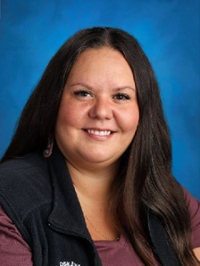 |
The Office of the Registrar will provide updates affecting secondary schools in Saskatchewan, including changes to the teacher accreditation policy, the discontinuation of grade 12 provincial exams, and the implementation of the 'SK' program of study for high school graduation. The session will also discuss complexities related to delivering Adult 12 programming within the K to 12 system, and introduce MyCreds, an online portal where students can access their official high school transcripts.
|
Deni Miclea is a retired member of the Canadian Armed Forces and a former middle years and high school teacher. He taught in Prairie South School Division, First Nations Schools, worked as an educational administrator at Treaty Education Alliance, and taught as a sessional instructor at the University of Saskatchewan and the First Nations University of Canada. In 2022, Deni joined the Ministry of Education helping to implement MySchoolSask (MSS) before transitioning into his current role as the Registrar. |
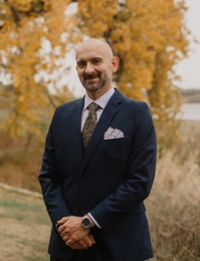 |
This session will consider school leadership from a human resource management perspective. Participants will share in discussion focused on processes and perspectives that support staff and students schools.
|
Davin Hildebrand is currently the Deputy Director of Education with the Northwest School Division. He has been a LEADS member for the past 11 years working on a number of portfolios, including Human Resources. Davin also teaches sessional courses at the University of Saskatchewan, University of Regina, University of Alberta, Brandon University and Western University. He has three busy children and is married to Courtney, a school principal. |
 |
| Garette Tebay has the privilege of being a Superintendent of Schools with Saskatchewan Rivers Public School Division. In this role I get to support our school-based leadership teams here in our division as well as develop community engagement and communications at the division level. I have spent most of my career in education in Alberta having taught and been a school-based administrator in two divisions there. I have a passion for creating compassionate learning communities in the spaces I serve and completed my Doctoral research in this topic using Integral Theory. I moved to Prince Albert in 2022 to join the incredible work being done in Sask Rivers and to be able to live and play in both the prairies and the forest. | 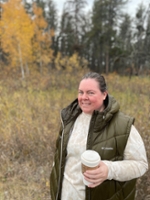 |
The backbone of the Saskatchewan Principals’ Short Course is the community of leaders that selflessly offer their time and expertise to guide the learning of our delegates. Their demonstrated capacity to lead in complex times and to help define Saskatchewan provincial and First Nations schools as some of the best in the world ensures that delegates are engaging with theory and practice as they develop their own capacities and dispositions to leadership. Throughout the week, delegates will raise key questions that we will put to our facilitators to share their knowledges, experiences, and insights. As we give the “last word” to our facilitators, we will be reminded that leaders are those who mobilize their vision through relationships, dedication and hard work, and being purveyors of hope and catalyst for change in professional and community circles.

